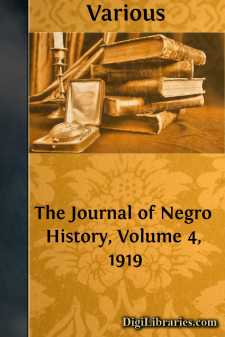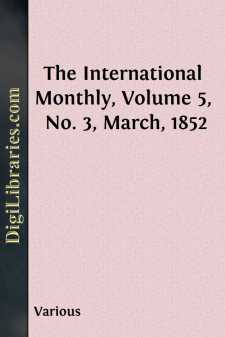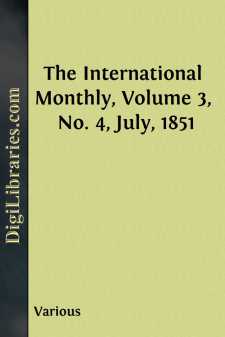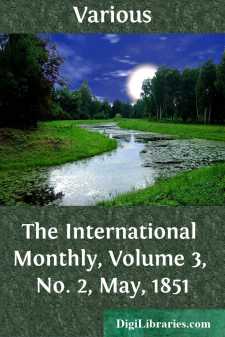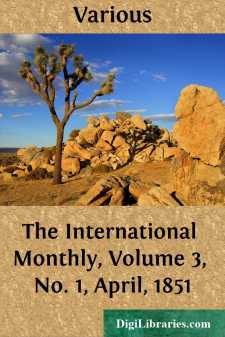Categories
- Antiques & Collectibles 13
- Architecture 36
- Art 48
- Bibles 22
- Biography & Autobiography 813
- Body, Mind & Spirit 142
- Business & Economics 28
- Children's Books 14
- Children's Fiction 11
- Computers 4
- Cooking 94
- Crafts & Hobbies 4
- Drama 346
- Education 46
- Family & Relationships 57
- Fiction 11829
- Games 19
- Gardening 17
- Health & Fitness 34
- History 1377
- House & Home 1
- Humor 147
- Juvenile Fiction 1873
- Juvenile Nonfiction 202
- Language Arts & Disciplines 88
- Law 16
- Literary Collections 686
- Literary Criticism 179
- Mathematics 13
- Medical 41
- Music 40
- Nature 179
- Non-Classifiable 1768
- Performing Arts 7
- Periodicals 1453
- Philosophy 64
- Photography 2
- Poetry 896
- Political Science 203
- Psychology 42
- Reference 154
- Religion 513
- Science 126
- Self-Help 84
- Social Science 81
- Sports & Recreation 34
- Study Aids 3
- Technology & Engineering 59
- Transportation 23
- Travel 463
- True Crime 29
Sort by:
by:
Various
THE NEGRO IN EDUCATION In the early history of America there were three types of settlements—the French, Spanish, and English. In the French Provinces the teachings of the "Code Noir" made it incumbent upon the masters to teach the slaves, at least to read, in order, of course, that they might read the Bible; and in the Spanish districts the Latin custom of miscegenation prevented the rise of...
more...
by:
Various
PRIMITIVE LAW AND THE NEGRO The psychology of large bodies of men is a surprisingly difficult topic and it is often true that we are inclined to seek the explanation of phenomena in too recent a period of human development. The truth seems to be that ideas prevail longer than customs, habits of dress or the ordinary economic processes of the community, and the ideas are the controlling factors. The...
more...
by:
Various
THE STORY OF JOSIAH HENSON No one ever uttered a more forceful truth than Frederika Bremer when she said in speaking to Americans: "The fate of the Negro is the romance of your history." The sketches of heroes showing the life of those once exploited by Christian men must ever be interesting to those who would know the origin and the development of a civilization distinctly American. In no case...
more...
by:
Various
I. The Origin and Extent of Slavery in the Several Economic Zones of Africa Slavery in Africa has existed from time immemorial, having arisen, not from any outside influence, but from the very nature of the local conditions. The three circumstances necessary to develop slavery are: First, a country favored by the bounty of nature. Unless nature yields generously it is impossible for a subject class to...
more...
by:
Various
The Negroes of Cincinnati Prior to the Civil War The study of the history of the Negroes of Cincinnati is unusually important for the reason that from no other annals do we get such striking evidence that the colored people generally thrive when encouraged by their white neighbors. This story is otherwise significant when we consider the fact that about a fourth of the persons of color settling in the...
more...
by:
Various
Lives of the Irish Bishops, published by Ware, in 1665, and rewritten by Harris in the beginning of the last century, have been long regarded as authentic history; and the statements of these learned writers have been generally accepted without hesitation, being supposed to rest on ancient and indubious documents. It is thus, to take a quite recent example, that the Rev. W. Maziere Brady, D.D., in the...
more...
by:
Various
For several weeks the attention of the curious has been more and more attracted to a remarkable ethnological exhibition at the Society Library. Two persons, scarcely larger than the fabled gentlemen of Lilliput, (though one is twelve or thirteen and the other eighteen years of age), of just and even elegant proportions, and physiognomies striking and peculiar, but not deficient in intellect or...
more...
by:
Various
FITZ-GREENE HALLECK. The author of Fanny, Burns, Marco Bozzaris, etc., was born at Guilford in Connecticut, in August, 1795, and in his eighteenth year removed to the city of New-York. He evinced a taste for poetry and wrote verses at a very early period; but the oldest of his effusions I have seen are those under the signatures of "Croaker," and "Croaker & Co.," published in the...
more...
by:
Various
GEORGE WILKINS KENDALL. We have here a capital portrait of the editor in chief of the New Orleans Picayune, George W. Kendall, who, as an editor, author, traveller, or bon garçon, is world-famous, and every where entitled to be chairman in assemblies of these several necessary classes of people. Take him for all in all, he may be described as a new Chevalier Bayard, baptized in the spirit of fun, and...
more...
by:
Various
JAMES FENIMORE COOPER. The readers of the International have in the above engraving, from a Daguerreotype by Brady, the best portrait ever published of an illustrious countryman of ours, who, as a novelist, take him all in all, is entitled to precedence of every other now living. "With what amazing power," exclaims Balzac, in the Revue de Paris, "has he painted nature! how all his pages...
more...



